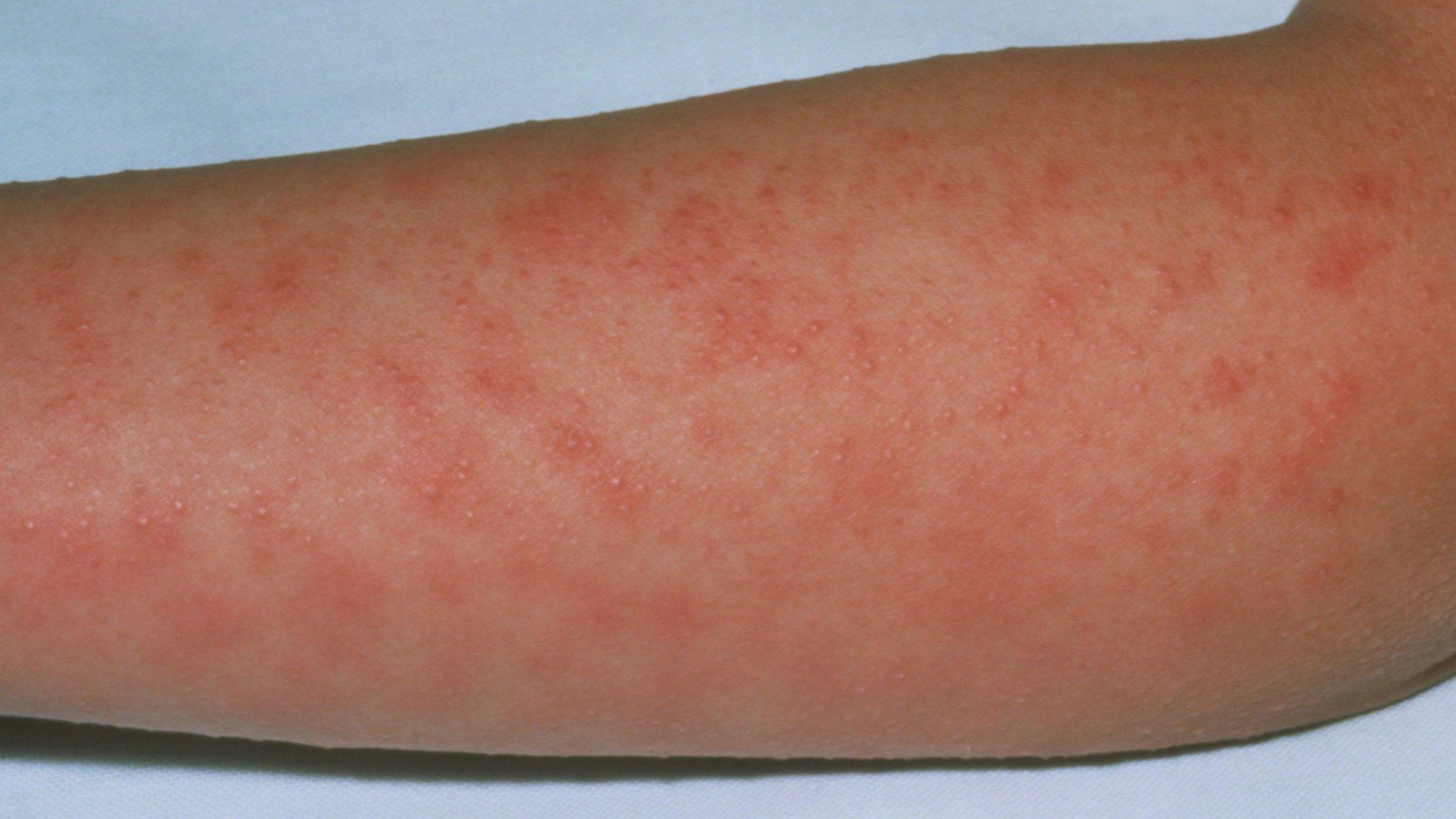Rise in scarlet fever cases shows 49-year high, health experts say
- Published

Scarlet fever is most common in children under ten years old.
Cases of scarlet fever in England and Wales have risen to the highest level since the 1960s, Public Health England (PHE) says.
In 2015 there were 17,586 cases of scarlet fever.
Analysts have to go as far back as the year 1967 - when 19,305 cases were reported - to find a year when the numbers were higher.
PHE is alerting all health practitioners to be mindful of the disease when assessing patients.
Scarlet fever is most common in children under ten years old.
Victorian era
PHE said about 600 cases are being flagged up each week in England, and further increases are expected as the infection comes into it the peak season - which typically occurs between late March and mid April.
The number of cases of scarlet fever has soared in the last three years, PHE said.
In 2013 there were just 4,642 cases reported in England and Wales, but this then jumped - by 236% - to 15,625 cases in 2014.
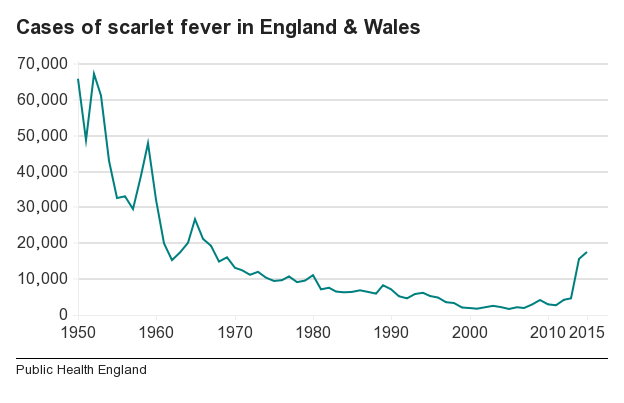
A PHE spokesman said the reason behind the increase in cases was "unclear" but added that it "may reflect the long-term natural cycles in disease incidence seen in many types of infection".
Scarlet fever is caused by bacteria known as group A streptococcus, and it is spread through close contact with people carrying the organism - often in the throat - or through contact with objects and surfaces contaminated with the bacterium.

Analysis
By Dominic Howell, health reporter
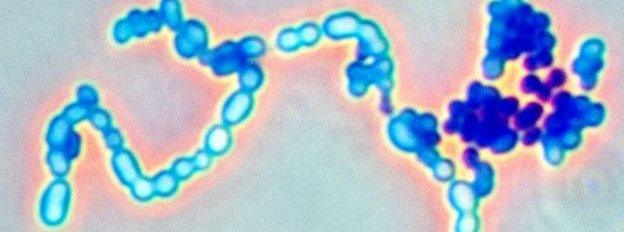
In the early 1900s through to the 1930s the number of cases of scarlet fever in England and Wales regularly topped 100,000.
Since then the numbers have, broadly speaking, been steadily declining - a trend spurred on by the introduction of antibiotics.
That was of course until 2014 when health experts saw a significant spike in the figures. But why?
In short, the answer has "flummoxed" medical analysts, and cannot be explained through the general rises in population.
Test samples have been collated from different parts of the country and experts believe no new strain of scarlet fever has appeared.
Equally, initial tests suggest the infection has not become resistant to penicillin, but this is being watched closely.
The explanation remains a mystery.

Dr Theresa Lamagni, PHE's head of streptococcal infection surveillance, said: "Symptoms usually clear up after a week and the majority of cases will resolve without complication as long as the recommended course of antibiotics is completed.
"Potential complications include include ear infection, throat abscess and pneumonia.
"Patients who do not show signs of improvement within a few days of starting treatment should seek urgent medical advice."
In Wales alone, the number of cases recorded in 2015 fell slightly by 10% on the previous year from 1,375 cases to 1,234. But these numbers are still high when compared to the figure for 2013 in Wales which was just 190 cases.
Dr Chris Williams, consultant epidemiologist for Public Health Wales, said: "We are monitoring an increase in scarlet fever in Wales, which is to be anticipated at this time of year."
Meanwhile, Health Protection Scotland said: "Current data shows that cases have been rising through the early part of 2016 in Scotland, the number of laboratory reports is very similar to 2015 levels."
In England, between September 2015 and March 2016, 6,157 cases were reported - a 7% rise on the same period in the previous year.
In Northern Ireland, there were 363 cases in 2015 which is a fall of 41% on 2014 when 625 cases were recorded. In 2013, Northern Ireland had 199 cases.

Scarlet fever symptoms and facts
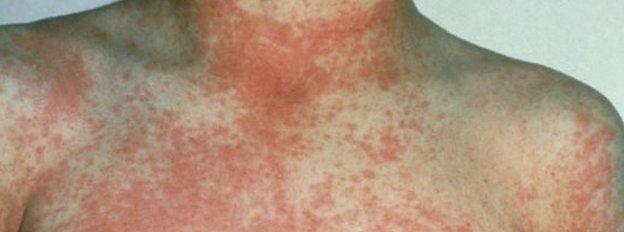
Scarlet fever was once a very dangerous infection in the Victorian era, but has now become much less serious thanks to better medicine
Antibiotic treatment should be given to minimise the risk of complications, but there is currently no specific vaccine for scarlet fever.
Early signs to look out for include a sore throat, headache and fever with the characteristic pinkish sandpapery rash typically on the chest and stomach but then spreading to other parts of the body.
Parents who think they or their child may have scarlet fever should seek advice from their GP without delay as prompt antibiotic treatment is needed.

- Published13 March 2015
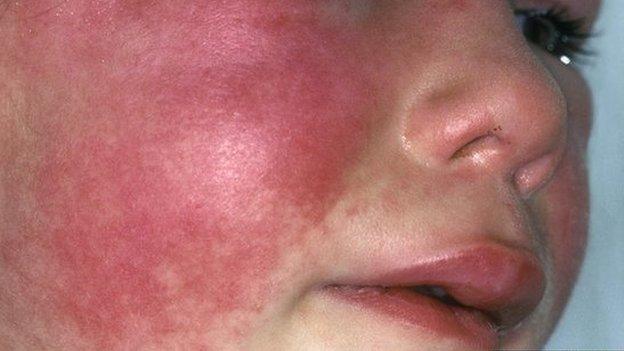
- Published10 March 2014
